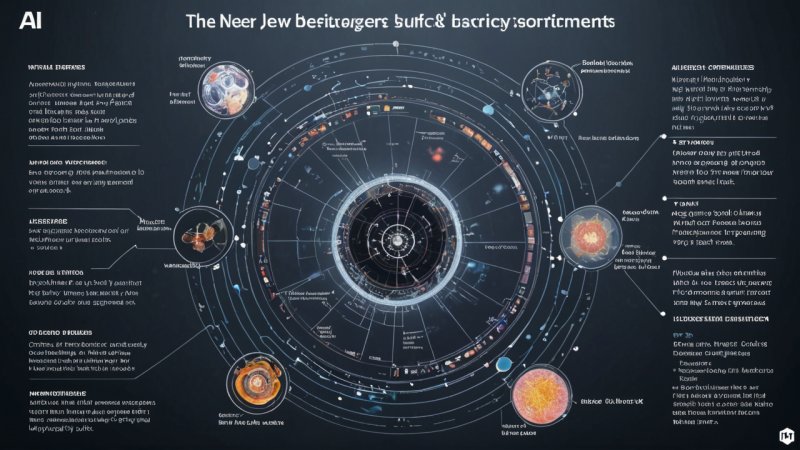Artificial Intelligence (AI) is increasingly becoming a vital tool in the realm of scientific research, driving innovation and enhancing the efficiency of studies across various disciplines. This article delves into the transformative impact of AI in science, demonstrating how it is facilitating discoveries, improving data analysis, and presenting both opportunities and challenges for researchers.
One of the most significant ways AI is being utilized in scientific research is through its ability to analyze large datasets. The explosion of data in fields such as genomics, astronomy, and social sciences presents a challenge for researchers who need to extract meaningful insights. AI algorithms, particularly those based on machine learning, can process and analyze this data at an unprecedented scale. For example, in drug discovery, AI is being used to predict how different compounds will interact with biological systems, significantly reducing the time it takes to identify potential new medications.
In addition to data analysis, AI is also enhancing the design of experiments. Researchers are using AI to optimize experimental setups, which can lead to more effective and efficient studies. This is particularly useful in fields like materials science, where AI can predict the properties of new materials before they are synthesized in the lab. By leveraging AI, scientists can streamline the research process, saving both time and resources.
However, the integration of AI into scientific research is not without its hurdles. One major concern is the interpretability of AI-driven results. While AI can uncover complex patterns and correlations, understanding the reasoning behind AI's conclusions can be challenging. This lack of transparency raises questions about the reliability of AI-generated findings, especially in fields where human lives are at stake, like medicine. Researchers must work to ensure that AI tools are not only effective but also comprehensible and trustworthy.
As we look to the future, the role of AI in scientific research is only expected to grow. The continuous advancement of AI technologies will likely lead to even more sophisticated tools that can assist researchers in tackling some of the world's most pressing challenges. Interdisciplinary collaboration will be essential, as scientists from various fields work together with AI experts to develop tools that can enhance research outcomes.
In summary, AI is ushering in a new era of scientific discovery by improving data analysis, optimizing experimental design, and enabling researchers to tackle complex problems more efficiently. While challenges regarding interpretability and trust remain, the potential of AI to reshape scientific research is vast. Embracing AI technologies while addressing ethical considerations will be crucial for fostering innovation and ensuring that scientific advancements benefit society as a whole.
AI in Science: A New Era of Discovery
Explore how Artificial Intelligence (AI) is revolutionizing scientific research by enhancing data analysis and experimental design, while also addressing the challenges of interpretability and trust.






